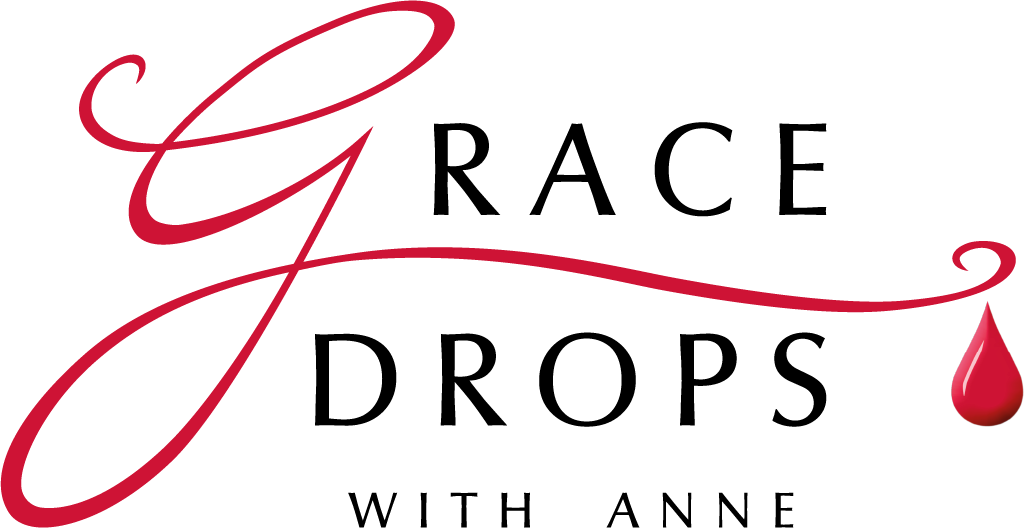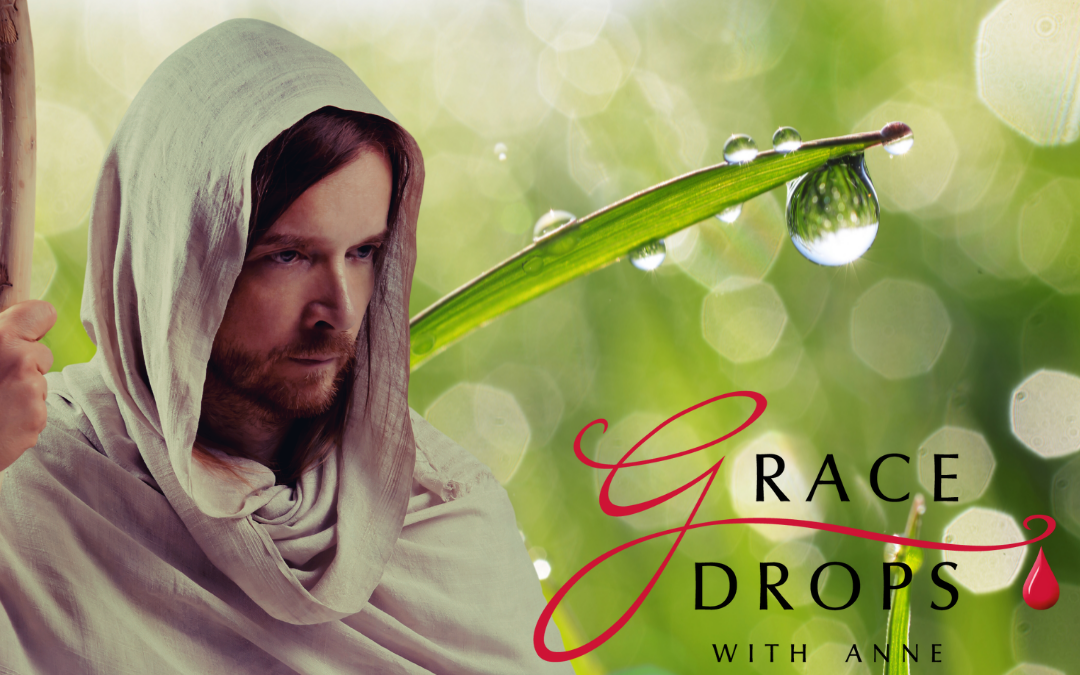This podcast is by special request and is based on John 6. If you are reading rather than listening, you may want to pause at the selah moments to listen to a song from YouTube. The choice of song was dictated by their absence of ads.
Jesus answered, “I am the bread of life. Whoever comes to Me will never hunger, and whoever believes in Me will never thirst.
At this, the Jews began to grumble about Jesus because He had said, “I am the bread that came down from heaven.” They were asking, “Is this not Jesus, the son of Joseph, whose father and mother we know? How then can He say, ‘I have come down from heaven?’”
“Stop grumbling among yourselves,” Jesus replied. “No one can come to Me unless the Father who sent Me draws him, and I will raise him up at the last day. It is written in the Prophets: ‘And they will all be taught by God.’ Everyone who has heard the Father and learned from Him comes to Me—not that anyone has seen the Father except the One who is from God; only He has seen the Father.
Truly, truly, I tell you, he who believes has eternal life. I am the bread of life. Your fathers ate the manna in the wilderness, yet they died. This is the bread that comes down from heaven, so that anyone may eat of it and not die. I am the living bread that came down from heaven. If anyone eats of this bread, he will live forever. And this bread, which I will give for the life of the world, is My flesh.”
John 6:35; 41–51 BSB

This section of John’s gospel is sandwiched between two contrasting moments in the life of Jesus. It’s that grey twilight area where light starts to turn to dark. It’s the transitional phase between a day of acclaim and acceptance, and a day of disdain and rejection. The background to this part of the story was the previous day’s miracles—less than twenty-four hours previously, Jesus had multiplied the loaves and fishes in the late afternoon and then, that evening, He had walked on water.
Realising He’d disappeared, the crowd searched for Him the next morning and, when they found Him, He began to explain what the sign of the multiplying loaves and fishes was all about. In this portion of the gospel, He continues to clarify things—and, as a result, so many people took offence at what He said that they no longer followed Him. There came a moment of choice when things simply became too hard and it was easier to turn away than try to push on past the pain into the heart of the mystery.
That’s true in our lives too. There comes a moment of choice when things simply become too hard and it’s always easier to turn away than try to push on past the pain into the heart of the mystery. In our relationships with God, and with other people too, this is the moment when commitment is tested. It’s the hinge on which future blessings turn—or not.
Now this story is told in all four gospels, each time with a slightly different emphasis. It’s incredibly important. John’s special focus is on ‘the Bread from Heaven’ as one of the seven I AM statements of Jesus. This particular I AM statement is accompanied by one of the seven signs, the multiplication of the loaves and fishes.
Now the key to understanding what this extended episode was all about is being able to identify what ‘the Bread from Heaven’ meant to the people of Israel in the first century. Every religiously-minded Jew of the time would have reacted with horror to the statement, ‘I AM the Bread from Heaven,’ regardless of any free feed, miraculous or not. I AM is, of course, the name of God and it was enough of a problem that Jesus was applying it to Himself. But to make matters infinitely worse, ‘the Bread from Heaven’ was a title of a harvest deity originally from Mesopotamia. It was applied to Tammuz, who was viewed as the power in the grain. When barley or wheat was milled Tammuz died, but through the power in the grain he rose again when a seed was planted and produced a twentyfold, sixtyfold or hundredfold harvest.
(Selah—pause for a song reflection).
Ezekiel describes a vision in which he was taken by the Lord ‘to the north gate of the LORD’s Temple, and some women were sitting there, weeping for the god Tammuz.’ (Ezekiel 8:4 NLT) It’s explained to him that this ritual mourning for a pagan deity is one of the reasons the Lord’s presence has left the Temple.
Now the people in the time of Jesus were well aware of the prohibition on worshipping Tammuz. And by saying, ‘I AM the Bread from Heaven,’ Jesus was forcing the issue. He was confronting people with choices about what they truly believed, deep in their hearts. Just prior to this conversation, Jesus had said to those who’d come seeking Him, ‘Truly, truly, I tell you, it was not Moses who gave you the bread from heaven, but it is My Father who gives you the true bread from heaven.’ (John 6:32 BSB) He made this comment about Moses in reply to a statement, ‘Our fathers ate the manna in the wilderness, as it is written: ‘He gave them bread from heaven to eat.’ (John 6:31 BSB) Somehow Jesus had looked deep into the hearts of the inquirers and realised that the ‘He’ of this Scripture quote was understood by the people to mean Moses, not God.
So Jesus was—and is—being highly provocative. Don’t worship Moses, He was saying. Don’t idolise Moses. Don’t set Moses up on a pedestal and think he provided what comes only from God.
He did the same with regard to Tammuz. Don’t worship Tammuz, He was saying. Don’t idolise Tammuz. Don’t think of Tammuz as having a title that belongs to God. The ‘Bread of Heaven’ is a designation for Yahweh and His Messiah, not for a Mesopotamian harvest godling.
Jesus was nothing if not thorough in His messaging. Remember that, in between the miracle of the loaves and fishes and the explanation of the miracle the next day, He’d walked on water during the night? This is not coincidental. He was sending to His disciples the same message with regard to the consort of Tammuz, the goddess Asherah. Don’t worship Asherah, He said. Don’t idolise Asherah. Don’t think of Asherah as having a title that belongs to God. The ‘One Who Walks on Water’ is a designation for Yahweh and His Messiah, not for the consort of a Mesopotamian harvest godling.
Jesus challenged the way the people thought about God and about Himself. He didn’t just perform these miracles to demonstrate He was the Son of God, He did them to reclaim divine titles that, across the centuries, had come to be associated with Tammuz and Asherah. He was, in fact, at war. That Galilean lakeside was really a battlefield.
And once we realise that it’s a warzone, we can see the ancient echoes come tumbling into it. Remember how the story started: with a young boy sharing his lunch? There’s another story in Scripture—an incredibly famous one—about a boy going down to a battlefield with some lunch for his brothers. At the end of the story he slays a giant and, as a result, becomes so popular that the king turns against him and he has to flee into exile.
Yes, this is the David-and-Goliath incident in the life of Jesus and, once we know David’s story, we know this momentary popularity for Jesus is going to end in rejection. Now it might seem strange to say that Jesus was going up against a giant in this epiode—but it’s so. More accurately, however, He was going into battle against the spirit behind the ancient giants.
Goliath came from Gath and was a champion of the Philistines. These coast-dwelling people worshipped Dagon, a godling of both fish-and-grain. When the Philistines placed the captured Ark of the Covenant in Dagon’s temple, his statue was broken in pieces—just as the five bread loaves and two fish were taken and broken by Jesus as He blessed them and gave them to His disciples to distribute.
(Selah—pause for a song reflection).
This story about bread and fish is ultimately a call to return to God. Just like another story about bread and fish is.
After the resurrection, Jesus met His disciples by the Sea of Galilee. This is what John reports happened in chapter 21 of his gospel:
“Come, have breakfast,” Jesus said to them. None of the disciples dared to ask Him, “Who are You?” They knew it was the Lord. Jesus came and took the bread and gave it to them, and He did the same with the fish.
John 21:12–13 BSB
There’s the bread and fish again, and this time it’s a breakfast baked on hot coals. It happens just after Simon Peter has said to his fellow-disciples, ‘I am going fishing.’ (v. 3) Now, this isn’t recreational fishing he’s talking about, it’s going back to his old way of life. He’s basically saying, ‘I’ve had enough. I’m giving up. I’m going back to what I had before. I’m not doing the disciple-of-Jesus thing anymore.’
Breakfasts, especially involving bread baked on hot coals, are rare in Scripture. The only other time it happens is when Elijah has food prepared for him by an angel as he’s on the run from Jezebel. And it’s very similar circumstances. Elijah had basically said at that point: ‘I’ve had enough. I’m giving up. I’m going back to what I had before. I’m not doing the prophet-of-God thing anymore.’
All of these examples involve critical choices about the call of God. It’s easy to think we don’t have idols in our lives, but every time we resist change and decide getting our own way is more important than our relationship with God or other people, we walk away from Him. We do the same as the crowds did when Jesus said, ‘I AM the Bread from Heaven.’
Today, as we enter into worship, let’s face what is hidden in our hearts and choose to accept the bread not only as the Bread of Heaven but also as the Bread of Return to God.
Thank you to Lorna Skinner of www.riversofmusic.co.uk for the background music.


Amazing how you have joined all those dots Anne. I needed to hear this for myself and for the wider body
Thanks, Alex. I’ve begun to believe that “joining the dots” is simply asking the same pair of questions over and over: “What prophecy is Jesus fulfilling here? And what clue does that particular tiny detail give me?”
Thank you
I just want to post a quick note to thank you for this teaching. It is so amazing that it coincides with the First Fruits of Zion Torah Club “Jesus My Rabbi” lessons for the past few weeks. The timing has been a blessing and added new understanding.
I am also taking note of your two questions for the future.
Blessings.
Anne, the resetting of the scene as a battlefield is stirring. Jesus using words to tear down the thought houses for the godlings! Also, loved the hymns…haven’t heard some of these in many years. The last one with the descant reminded me of choir boy arrangements when I still sang soprano! Blessings to you!